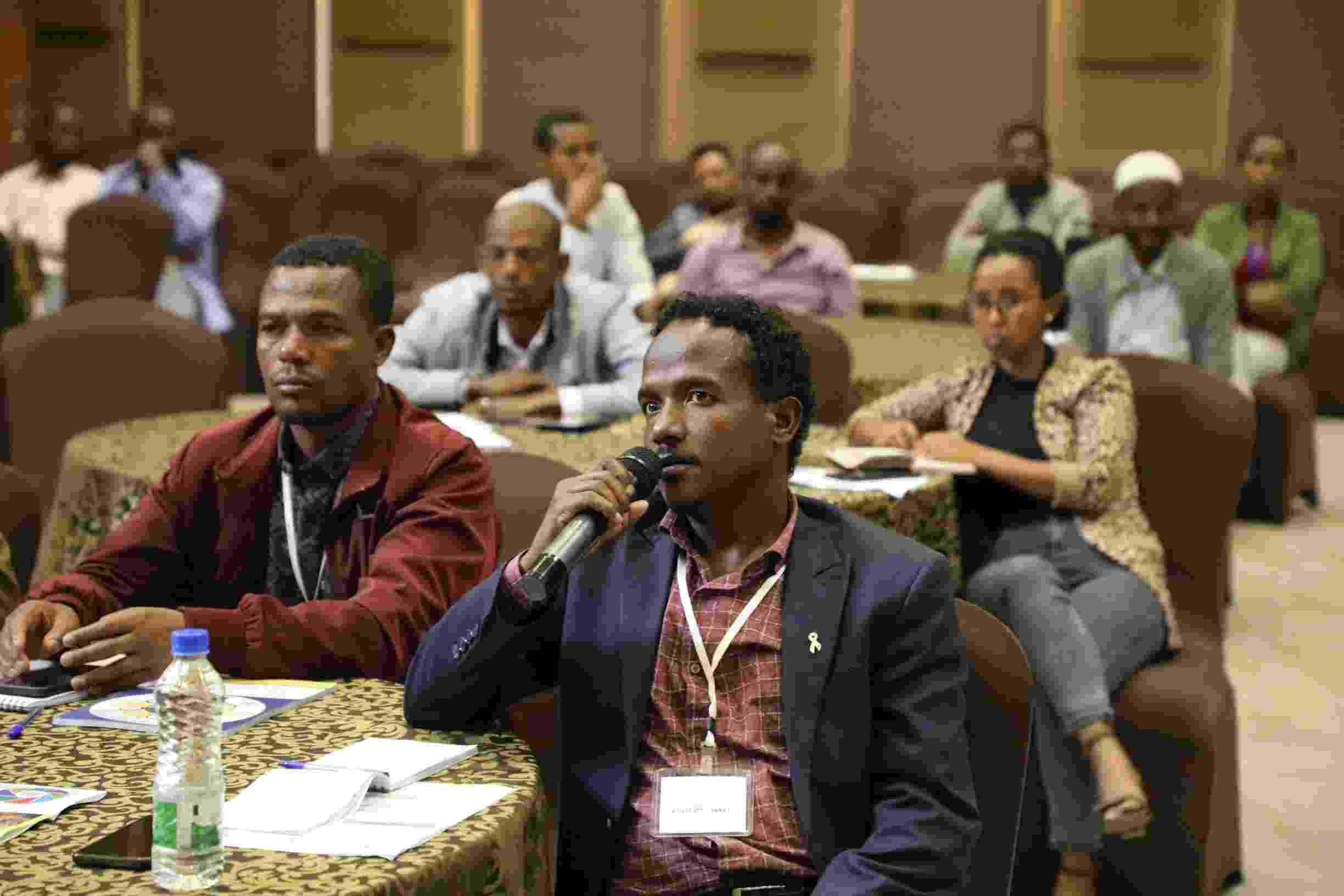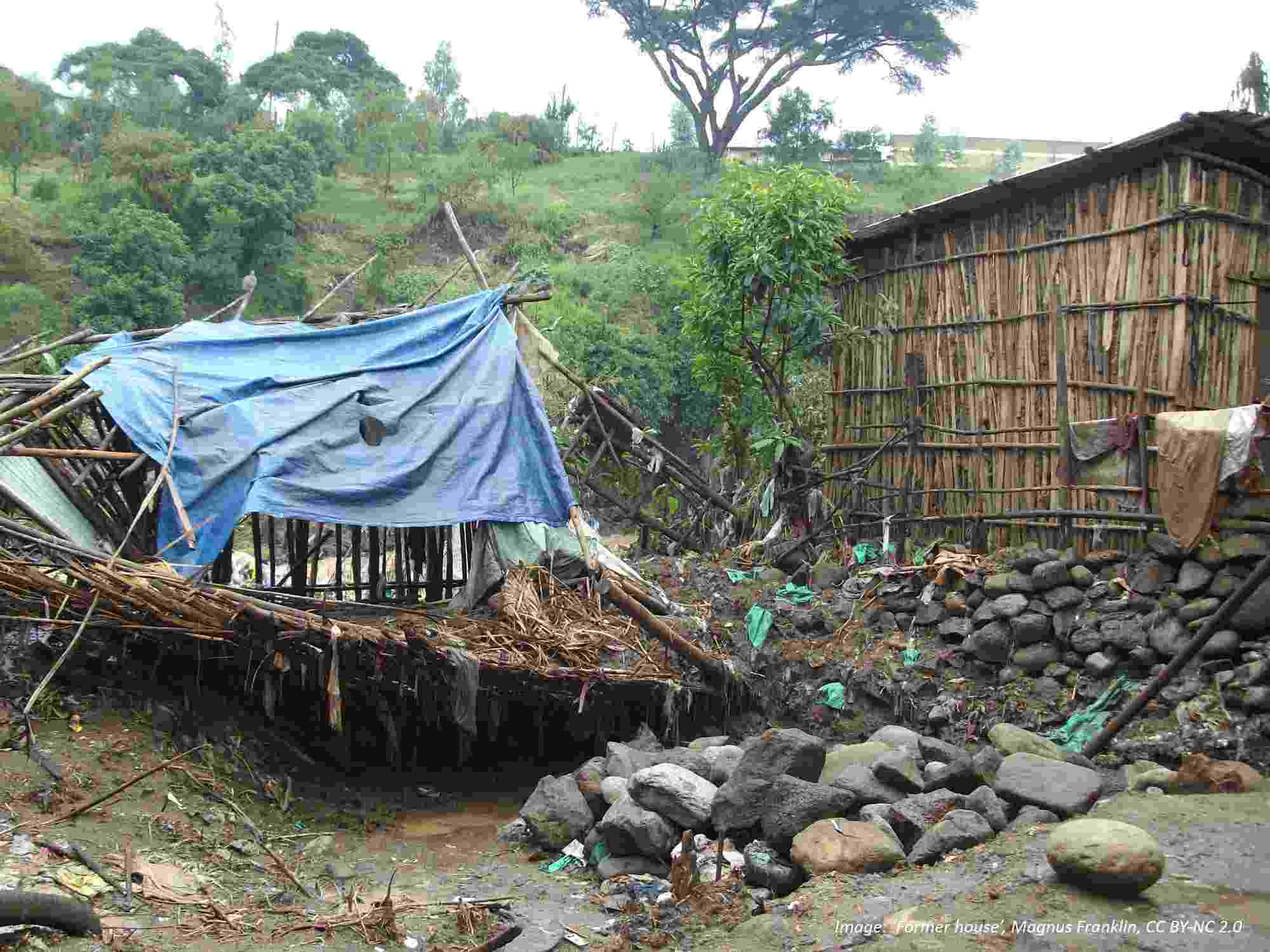Collaboratory update November 2023 | Ethiopia
All the latest from our Ethiopia Collaboratory
30 November 2023
Exploring and understanding water values, and how they intrinsically connect to and affect other aspects of water security, is a key research theme for the Hub. Our Ethiopia Collaboratory team has been exploring water values with a variety of communities, stakeholders and water sector members, and they are now working on capturing some of their research in an exciting music video. The lyrics and melody of the song have already been produced, capturing some of the Ethiopia team’s key research topics like water for food and health, tackling pollution, and how water acts as a link not just between communities, but the whole world. We look forward to sharing the finished song and video in Spring 2024.


Colleagues at one of our stakeholder workshops
Water knows no bounds, so it is crucial that we develop and maintain collaborative, trusting relationships with stakeholders across different water security aspects and geographies. Dr Adey Nigatu (WRLC), and Tsedenya Aregu (Newcastle University), co-facilitated a multi stakeholder discussion, focused on the challenges of groundwater management and governance in Ethiopia’s Central Rift Valley Basin (CRV). Colleagues at IWMI have also been working with multiple stakeholders in the CRV, collaborating with the Rift Valley Basin Administration Office (RVBAO) and the Ministry of Water and Energy (MoWE) to bring participants from 26 different organisations together and begin the formalisation of a multistakeholder forum. Dr Abreha Adugna, state minister of MoWE, said: “The multi stakeholder platform has significant potential for collaborative development and management of water resources in the CRV Lakes Basin.”
Building on the Addis Ababa Adaptation Network (AAAN), colleagues at IWMI are leading the process of establishing an Addis Ababa Water Governance Platform that comprises two core groups covering flood risk and pollution risk. The first meeting of the Platform brought together representatives from MoWE and the Addis Ababa Environmental Protection Authority (EPA), where participants identified stakeholders for the wider network group and agreed next steps for stakeholder consultation. Forums like these are important not just for developing and maintaining our own relationships with stakeholder partners, but also as key opportunities for the Hub to act as a neutral connection that bridges gaps and brings different actors together for the betterment of water security.


The team on their way to a field site
Our water quality team has completed a large amount of field work and data collection, and colleagues are now carrying out analysis and preparing a number of different reports and papers. Amongst others, some of the topics include: integrated approaches for water quality assessment; pollution challenges and consequences; monitoring gaps and assessment of heavy metal parameters; and pesticide exposure in water catchments. Keep an eye on our website and future newsletters for upcoming publications.
Colleagues organised a workshop on protecting human health through a One Health approach in the Akaki catchment. Held collaboratively with CGIAR, the workshop brought together over 30 participants from diverse research and experiential backgrounds, including environment, human health, animal health, and water quality. The event will help initiate a knowledge co-creation process focused on water quality monitoring and modelling in the Akaki watershed of Addis Ababa.
The governance team has been working closely with Colombian colleagues to develop collaborative research on social cartography research methods, for example, combining and integrating community-based social cartography methods with GIS and remote sensing methods. Ethiopian colleagues have held a number of social cartography participatory sessions, working together with communities to map out their local areas, to help increase their understanding of the interconnectedness of water security, human wellbeing, and ecosystem health. Their next step is to carry out social mapping that integrates social cartography and stakeholders’ analysis to produce data on water pollution in the Akaki River Basin.


The disastrous consequences of flooding on livelihoods
Colleagues working in flood risk and mitigation have conducted a field survey, expert consultation, and community consultation within the Akaki River Basin. The combined results of these activities will enable the team to identify and prioritise flood risk mitigation measures that are considered effective by both experts and communities based in the floodplain. Next steps are to evaluate trade-offs between mitigation measures with models that have been calibrated using crucial citizen science data.
In the Central Rift Valley Basin (CRV), our governance team is exploring the catena of water governance, looking at upstream-downstream linkages, and conflicts in water access and use. Additionally, they’re applying an intersectionality lens to water governance and management in the basin, and preparing a number of publications covering topics like challenges of financing water governance; power dynamics in water use; and the politics of gender and power relations in water.
Finally, congratulations to Wegayehu Asfaw on being awarded a mobility fund to travel to the Earth Surface Process Modelling department at the GFZ German Research Centre for Geosciences. Wegayehu will collaborate with researchers at the institute on evaluating the likely impacts of climate change and urban expansion on flood risk in the Akaki catchment.
Take a look at some of the team’s recent blog posts:



